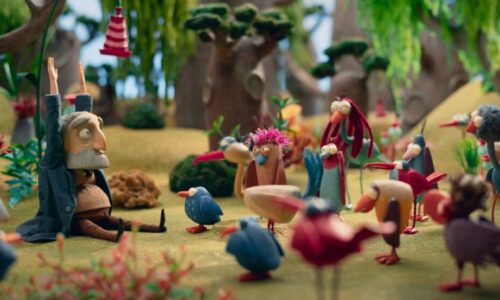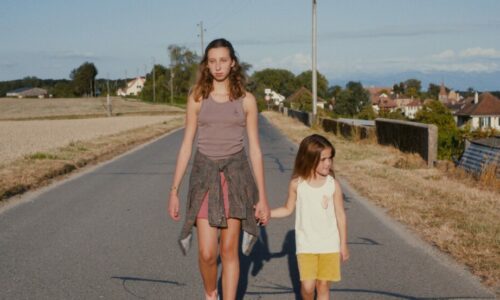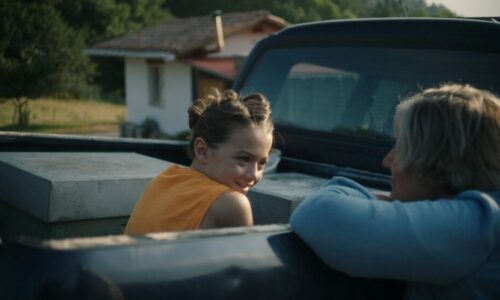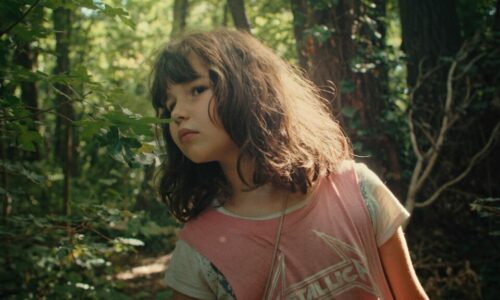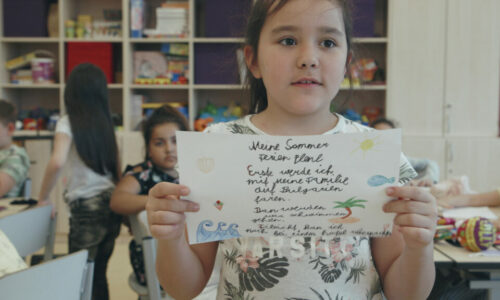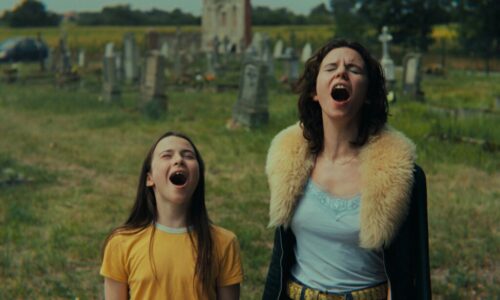Titel: Mamá, mamá, mamá | Mum, Mum, Mum
There is silence and an oppressive atmosphere in the room as we meet Cleo (Agustina Milstein). Her features convey a lot of thoughtfulness, which is only broken by a cartoon on TV and the whirring fan. Then she puts on goggles and leaves the room. On her way she passes a door where she lingers for a short while and then calls for her mother, but there is no reaction. Then a scene cut follows and we see in a flashback (filmed in a kind of 8 millimetre version) an adult person carrying a child in her arms. What happened can only be roughly guessed here, because the next cut takes place and we see Cleo again. The mood remains constant, but she is no longer alone in the apartment. Her aunt with her three daughters has come to take care of Cleo and her mother. Cleo doesn’t understand that her mother has fallen into a deep depression, but she is very worried about her mother and is always looking for contact, even if it’s just a quick look through the crack of the door.
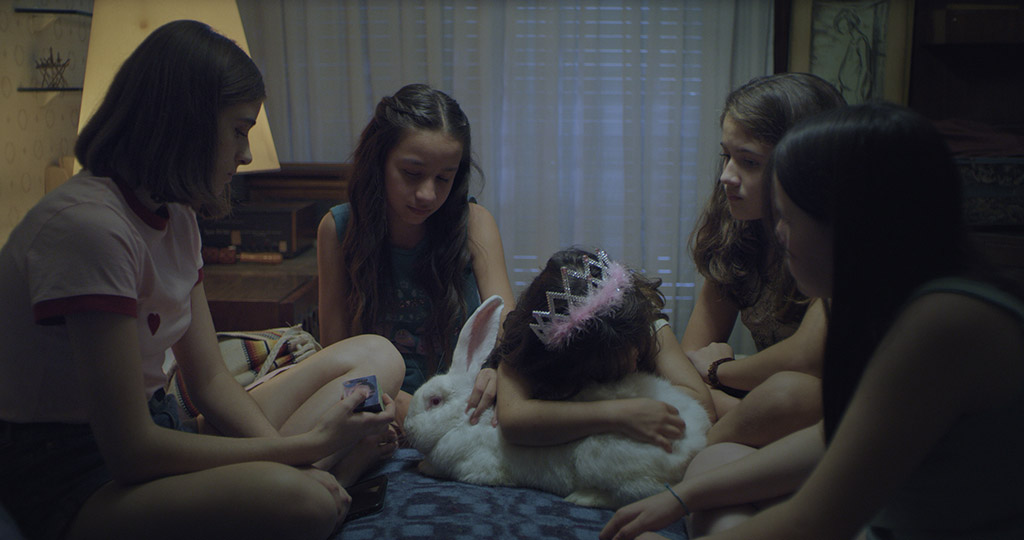
On another day two men appear on the property and start installing a fence around a pool, closing another piece of the puzzle. Now at the latest it is clear what a tragic event could have happened here. At the end it is supported by a scene in which a child from the neighbourhood throws cuddly toys over a big wall and asks for Aylin (???) to play with, which the mother notices and then collapses in the yard in front of the children. But of course life goes on. Little cousin Leoncia celebrates her birthday, together we play and discover the surroundings and also her first menstruation lets her grow up a bit more.
Conclusion:
The topic around depression seems to become a growing topic in our society, because already yesterday the same was seen in the movie “H for Happiness”. However, with Mamá, mamá, mamá this topic does not necessarily come to the fore. The focus here is on the different children and their everyday life after such an incisive experience. It is not uncommon for children in particular to forget something in such unfortunate incidents. Whether the film wants to show exactly that, I didn’t quite realize. Also, the beginning of the movie was a bit lengthy, as you are put off for quite some time to clearly understand the characters, what actually happened and why the characters act the way they do. This is something that only the sparse retrospectives can resolve over time, as there is not a single concrete statement about what happened throughout the movie. This was also a conscious decision for the film, as you could experience in the Q&A.
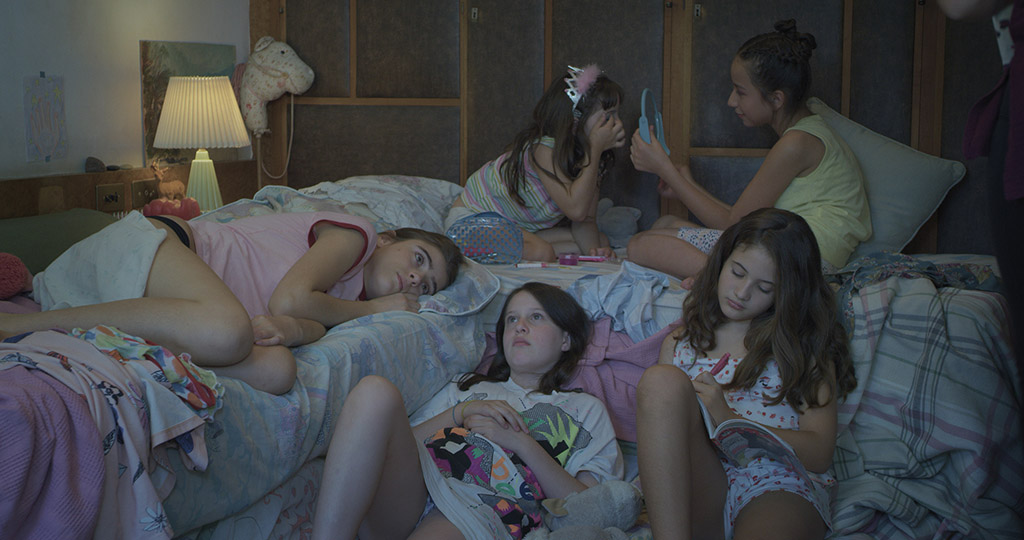
Conclusion:
The topic around depression seems to become a growing topic in our society, because already yesterday the same was seen in the movie “H for Happiness”. However, with Mamá, mamá, mamá this topic does not necessarily come to the fore. The focus here is on the different children and their everyday life after such an incisive experience. It is not uncommon for children in particular to forget something in such unfortunate incidents. Whether the film wants to show exactly that, I didn’t quite realize. Also, the beginning of the movie was a bit lengthy, as you are put off for quite some time to clearly understand the characters, what actually happened and why the characters act the way they do. This is something that only the sparse retrospectives can resolve over time, as there is not a single concrete statement about what happened throughout the movie. This was also a conscious decision for the film, as you could experience in the Q&A.
Actors:
Agustina Milstein (Cleo)
Chloé Cherchyk (Nerina)
Camila Zolezzi (Manuela)
Matilde Creimer Chiabrando (Leoncia)
Siumara Castillo (Aylín)
Vera Fogwill (Tía)
Jennifer Moule (Madre)
Shirley Giménez (Karen)
Ana María Monti (Abuela)
Florencia González Rodríguez (Erín)
Director:
Sol Berruezo Pichon-Rivière
Information about the film including a short film excerpt:
https://www.berlinale.de/en/programm/programm/detail.html?film_id=202007908
